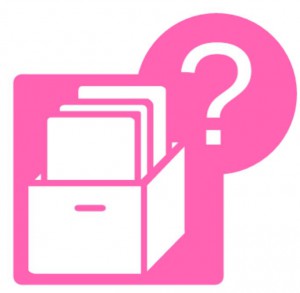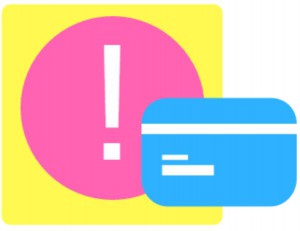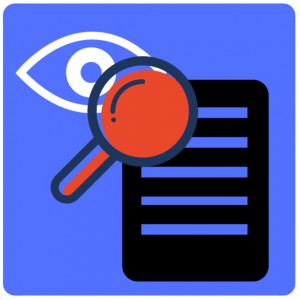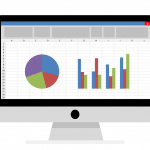Credit reports are a report that contains your credit history – both the good and the bad. If you watch late-night TV, you have probably seen a few commercials offering free credit reports, so you might know that these are important. Most people, however, don’t know just how big a role a credit report can play in their financial lives.
What is a Credit Report?

A credit report is a historical record of how you’ve managed your finances. It shows how and when you pay your bills that are credit related, how long you’ve been using credit, how much debt you currently have, and what credit has been paid off and closed.
There are three main organizations that provide credit reports in the United States: Experian, TransUnion, and Equifax. Each of these organizations is specially licensed to collect information on all individuals in the U.S. that is related to their credit and payment history, criminal records, bankruptcies, and lawsuits. Your personal credit report is an overview of these activities for the last 7-10 years.
When you request credit from a company, you give that company permission to pull your credit report. The company then asks one of the three credit reporting agencies for a copy of your credit report to help them assess your application for credit. Your report is probably pulled any time you want to open a credit card, take out a loan, get insurance, or rent a home. Sometimes potential employers might request a copy of your credit report, although in this case they need your written consent.
What is the difference between a “Credit Report” and a “Credit Score”?
Your credit report is a complete credit history, capturing information about the bills you have paid, the bills you paid late, the bills you didn’t pay, and their amounts. Your credit score is a number that represents how well you have repaid your debts. The more responsible you have been, the higher the number.
Since a credit report contains different information from different sources, all of that information is consolidated into what is known as a “FICO score.” The FICO score basically distills all your credit history down to a number. The larger this number is, the more trust the credit agencies have in you to pay your bills on time. If you have a clean credit report you will have a high credit score. A poor credit score indicates that you probably have a lot of late payments or complaints in your credit report.
Your income does not impact your credit score, but repeated requests to review your score do have a negative impact, since the credit rating agencies assume that if you are trying to get credit from many different places, your financial position might be unstable.
Why Do I Need To Care?
Both your credit report and your credit score are important, and they can have a huge impact on your financial life. Anyone who needs to assess your financial trustworthiness will probably look at your credit report, so it is absolutely in your best interest to keep it looking good.
Applying For A Credit Card

The first time your credit report might be viewed is when you apply for a credit card. The length of your credit history (how long you’ve been using credit), your credit score, how well you have kept up with previous payment obligations, and your income, will determine the range of credit options available to you.
Generally speaking, people with a poor credit history have lower spending limits, are charged higher interest rates, and are less likely to receive concessions (such as late payment forgiveness) or perks. On the other hand, if your credit report looks good, you will have a wide choice of different credit card companies offering increasingly attractive terms to attract your business.
Applying For A Mortgage
When you want to buy a house, make sure you shop around for a lender. Since the dollar amount borrowed will be much greater, more lenders will be willing to take a chance on you. This means more banks and lenders will be willing to lend to you in the first place, your interest rates will be better than those offered for a credit card (which can save you tens of thousands of dollars over the life of the loan), and you may have more flexible down payment options.
Renting an Apartment
When you rent an apartment, your potential landlord will probably pull your credit report. Landlords often use credit reports to compare different candidates and to determine the size of the security deposit they will require. Remember, the landlord is primarily concerned with making sure the rent will be paid on time. If a potential renter has a poor credit report, the landlord may rather wait for the next applicant than take a risk on a less trustworthy individual.
Getting Insurance
Since insurance companies are not extending credit to you, the information on your credit report may not play as large a role in determining whether or not to work with you. However, insurers may use your credit report information when they determine your premiums and deductibles. They want to make sure all of their clients are paying on time. In the insurance industry, the insurance provider needs to take in at least as much money from premiums as they are paying out in claims. If you don’t pay your premiums on time, that is bad for their business.
If you don’t pay on time for a few months in a row, the insurance company may cancel your policy. And if you don’t pay for a few months and then play catch up right before filing a claim, the insurance company will probably charge you higher premiums to make up for your irregular payment history.
Applying For A Job

In recent years, more employers are reviewing the credit history of potential job applicants. This trend first started in the finance and banking industry, but has been spreading to other employment sectors as well. Potential employers see your credit history as your overall professional trustworthiness, particularly if you have a long history of late payments.
What Exactly Is In My Report?
Your credit report follows your basic payment history to creditors. This includes:
- Credit card payments
- Cell phone payments
- Cable/Internet payments
- In-store financing For large purchases
- Unpaid parking tickets
- If you have been sued
- Any other outstanding debt
- Mortgage payments
- Rent
- Utilities (gas, electricity, water)
- Car payments
- Unpaid taxes
- If you have declared bankruptcy
- Pay Day loan payments
Items in your credit report do not stay there forever, so if you make credit mistakes when you are young, you might not need to suffer from them forever. Generally speaking, missed bill payments, collections, and most other items expire after 7 years. Bankruptcies and other civil judgments (like unpaid taxes) usually have a longer expiration, up to 10 years.
How Does This Information Get In My Credit Report?
The three credit reporting agencies get all of their information from your creditors. Everything in your report was given to them by someone you did business with or someone who sued you. Not every creditor supplies this information. For example, if you rent an apartment, your payment history might not appear in your credit report unless your landlord makes a point to report it. And the reported rental information may be unbalanced negatively for you since landlords might not always report timely or late payments but almost certainly will report judgments and collections.
Creditors report information which is linked to you through your social security number and your address. Your social security number is the main way information is linked, but sometimes your address is also used to help prevent fraud and identity theft.
The Fair Credit Reporting Act
All of the details presented so far have been helpful for creditors and employers, but you also have some control over your credit report information. The Fair Credit Reporting Act is a law that provides all consumers with certain rights to their credit report, and it includes restrictions on what businesses can include in the report and how they can use that information.
Consumer Rights
Once you have your credit report, you can dispute any claims on it if you feel they are not legitimate. You do this by calling the credit reporting agency who provided the report and filing a “dispute”. You also need to contact the lender who made the report and ask them to issue a correction if it is inaccurate. If the claim occurred because of an error, it will be removed from your report.

Even if a claim is not an error, you can contact the business who filed the claim and try to get it removed. If the business decides to withdraw the claim, that information is removed from your report. This often occurs when people move out of their home without paying the final utility bills. If you contact the utility companies and pay the outstanding bills (plus a fee), the companies may withdraw the claims entirely from your report. If you do have these negative credit claims, it is always in your best interest to find them and take care of them as soon as possible. Otherwise your future ability to obtain credit will be impacted. For more information on disputing claims, visit http://consumer.ftc.gov.
If a potential employer wants to see your credit report, they need to get your written permission, only use your report information for the purposes of hiring you (and tell you what those exact purposes are), provide you with a copy of the report if they decide not to hire you (or fire you), and give you an opportunity to dispute any outstanding claims before they make their final decision.
If you get denied credit (or a job) because of the contents of your credit report, you also have the right to get a free copy for your own reference.
User Responsibilities
Businesses who order credit reports also have limits on how they can use the information. Generally speaking, a business who orders a credit report must
- Only use the report for deciding the terms of your financial agreement
- Notify the individual if something in their credit report affected the business’s final decision
- Tell the consumer which company they got the report from so the consumer can verify the information
Data Provider Responsibilities
People and businesses who provide the data that is included in credit reports also have responsibilities. The most important responsibility is to make sure the information they report is accurate and up-to-date.
If you file a dispute, the data provider has 30 days to verify that the claim is accurate, or else the claim is removed from your report until they do so. The data provider must also take some safeguards to prevent data theft. This is why they require both a social security number and an address, so these items can be cross-referenced to check for identity theft.
The companies who provide data to the credit reporting agencies need to inform consumers before they file a claim and give the consumers a chance to resolve the claim before it appears on their credit reports.
Fixing Mistakes
Watch this great video from Bank of America showing how to find mistakes on your credit report, and get them corrected.
The Bottom Line
Your credit report is important, so don’t forget about it. You get one free look at your credit report each year, so you should take advantage of it. Some studies have shown that up to 30% of credit reports contain inaccurate information, so it is always in your best interest to have these issues resolved as soon as possible. (Note: Your free annual credit report does NOT include your credit score.)

Get PersonalFinanceLab
This lesson is part of the PersonalFinanceLab curriculum library. Schools with a PersonalFinanceLab.com site license can get this lesson, plus our full library of 300 others, along with our budgeting game, stock game, and automatically-graded assessments for their classroom - complete with LMS integration and rostering support!
Learn More[qsm quiz=79]
Challenge Questions
- How is a credit score calculated?
- What is the difference between a credit report and a credit score?
- How important is it for you to build your score? Give examples of how this will help you financially.
- List 3 Credit reporting agencies.
- How might fraud affect your credit score?



 Teacher Introduction Webinars
Teacher Introduction Webinars Convertible Preferred Stocks
Convertible Preferred Stocks Creating Financial Statements
Creating Financial Statements Poison Pill
Poison Pill